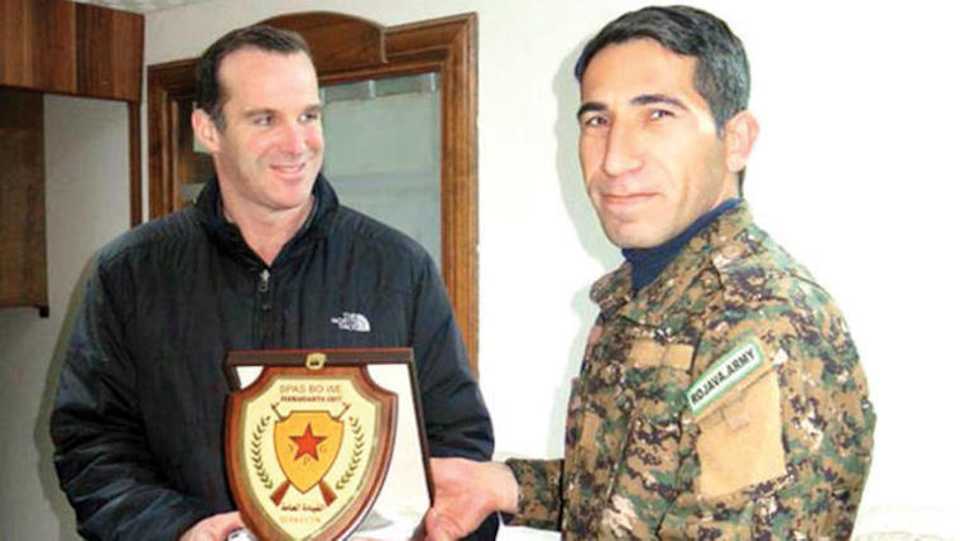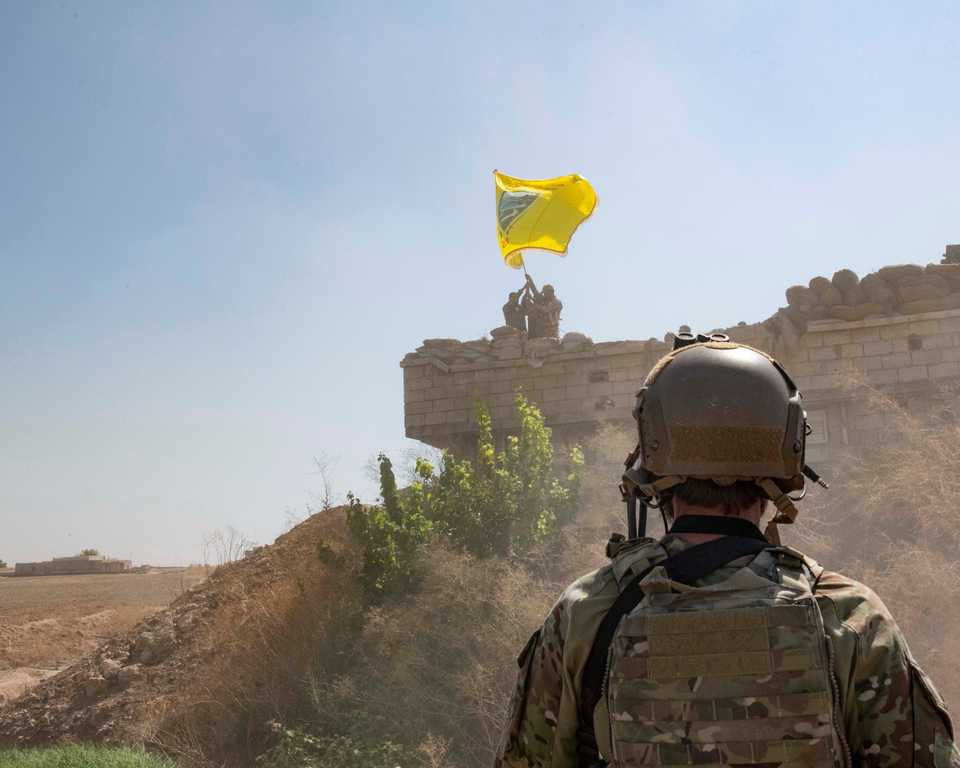
After US President Donald Trump’s recent decision to withdraw American soldiers from northern Syria paved the way for a Turkish offensive in the region, many influential figures from both the Republican and Democratic parties criticised him, defending Washington’s unscrupulous alliance with the YPG.
The YPG is the Syrian wing of the PKK, which is recognised as a terrorist organisation by the US, NATO and Turkey, and has led a three-decade terror campaign against Turkey, causing tens of thousands of deaths.
In light of PKK-YPG relations and different Kurdish factions, Trump tried to explain his change of Syria policy by highlighting Turkey’s constructive role in NATO and the rising security concerns due to the presence of YPG next to its borders. Yet, he faced opposition from some quarters of the American establishment, with some of the US officials saying Trump defended his new Syria policy in a “Wild West way”.
“So many people conveniently forget that Turkey is a big trading partner of the United States, in fact, they make the structural steel frame for our F-35 Fighter Jet,” the furious president said on Twitter.
“They have also been good to deal with, helping me to save many lives at Idlib Province,” Trump reminded his critics. The Assad regime has long planned to conduct an all-out assault to wipe out the last remaining opposition enclave in Idlib, where millions of civilians are living.
“Also remember, and importantly, that Turkey is an important member in good standing of NATO. He [Turkish President Recep Tayyip Erdogan] is coming to the US as my guest on November 13th,” Trump added.
For the past few years, the West has largely and strangely overlooked decades of Ankara’s partnership with Washington on several fronts since the years of the Cold War.
The Turkish army, which is the second-largest army in NATO, has sided with the US military on several crucial occasions — from the Korean War to conflicts in Somalia, Afghanistan, Kosovo and other hotspots around the world.
During the Cold War, Turkey, a country located between Asian and Europe, backed the US and stood up against the former Soviet Union, which was a behemoth of a state founded on radical communist principles. Turkey played a key role in blocking Moscow from penetrating the Middle East and the Mediterranean region.
For Ankara, Washington’s choice of the YPG, a PKK-affiliated group and a non-state actor, as its partner over Turkey in its fight against Daesh has been unacceptable from the very beginning.

Since 2014, when the US-YPG cooperation began, Turkey defended the formation of safe zones in northern Syria to address the growing refugee crisis, offering its own military plan to defeat Daesh with various rebel, opposition and anti-PKK Kurdish forces.
Despite the US refusal to accept its plans, Turkey still provided crucial support to the US-led anti-Daesh coalition, allowing its southern Incirlik base to be used for transporting both US military personnel and equipment.
But the US ignored that support and chose Turkey’s major adversary the PKK/YPG as its partner to drive Daesh out of Syria. Washington armed the PKK/YPG to the teeth with small to heavy-duty weapons, establishing SDF under the PKK/YPG leadership.
The US move disappointed Turkey, as it saw the presence of the heavily-armed and US-trained PKK/YPG as a looming security threat next to its southeastern and eastern borders.
However, Washington turned its back on Turkey, deceiving itself with an unvalidated feeling that “this untenable situation [will] work as long as it did” wrote Amanda Sloat, a Brooking Institution analyst.
“Turkey, a NATO member, never accepted US support for the group, which is directly linked to a terrorist organization that has long fought an insurgency against the Turkish state. Nor did every politician now criticizing Trump — whose decision-making has been characteristically chaotic — think this alliance was wise in the first place,” [sic] Sloat analysed.
This week, after a critical phone conversation between Trump and Erdogan on Sunday, in which the US president agreed to disengage from northern Syria, Ankara took the matter into its own hands and launched a long-due military operation into PKK/YPG-held territories in northern Syria.










Discussion about this post